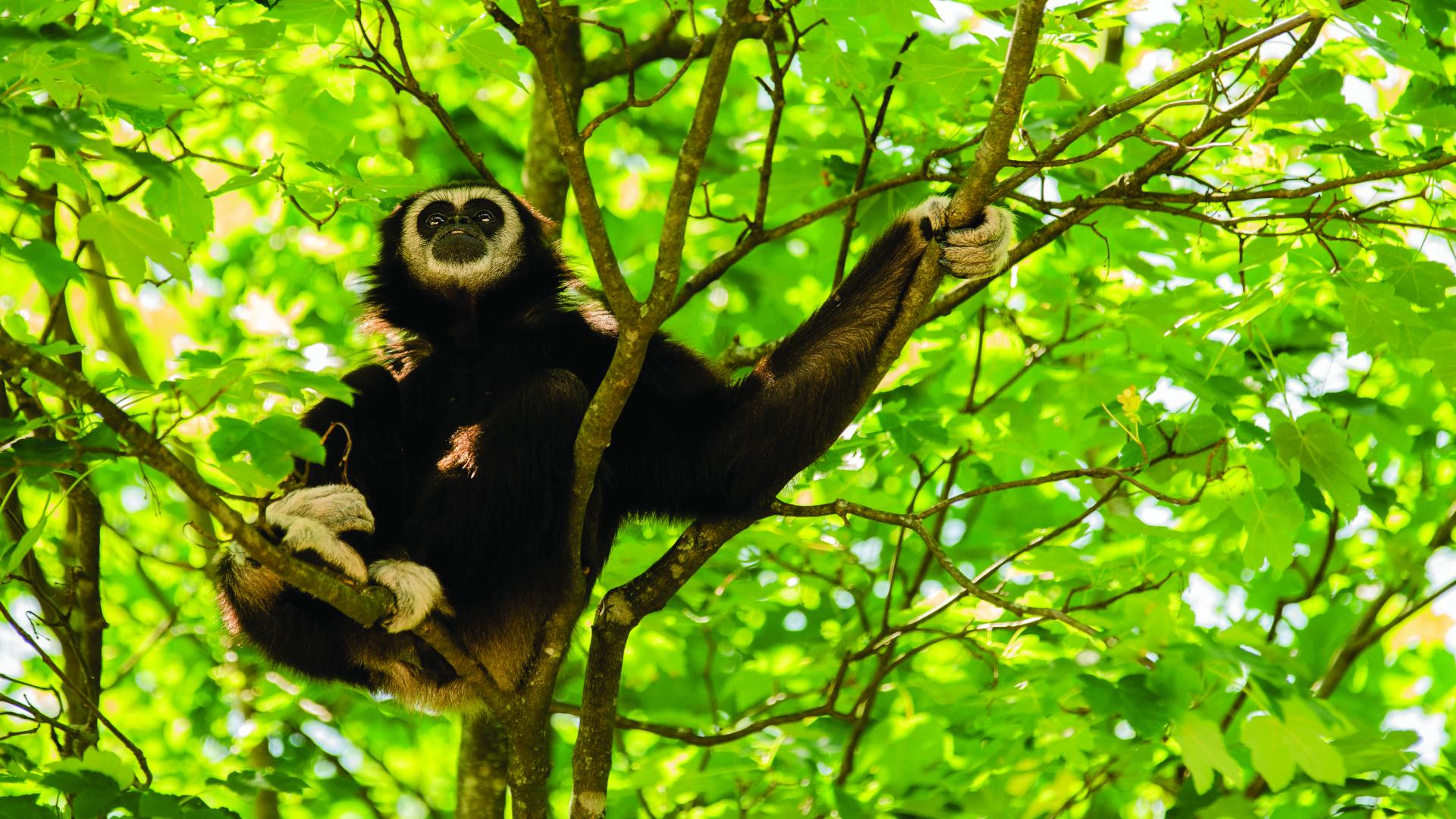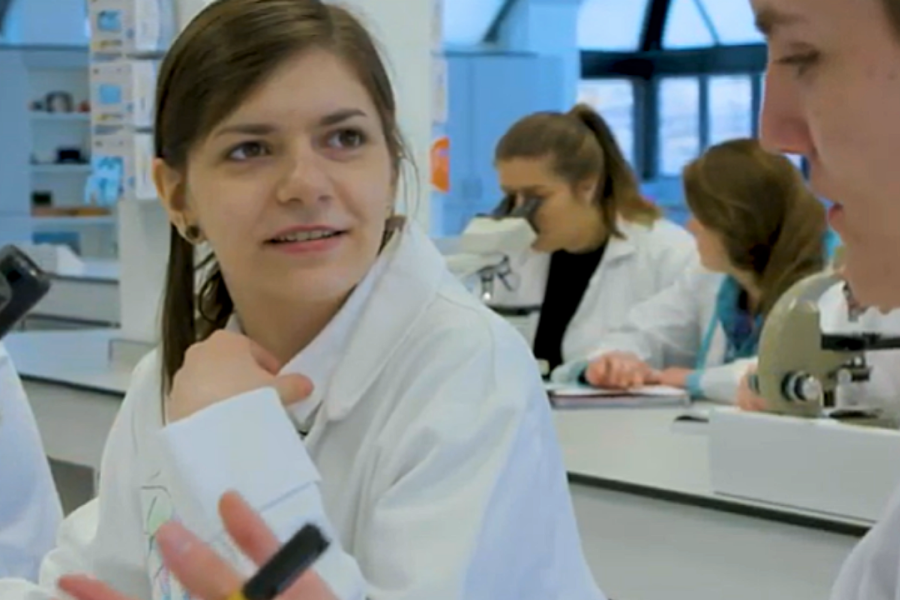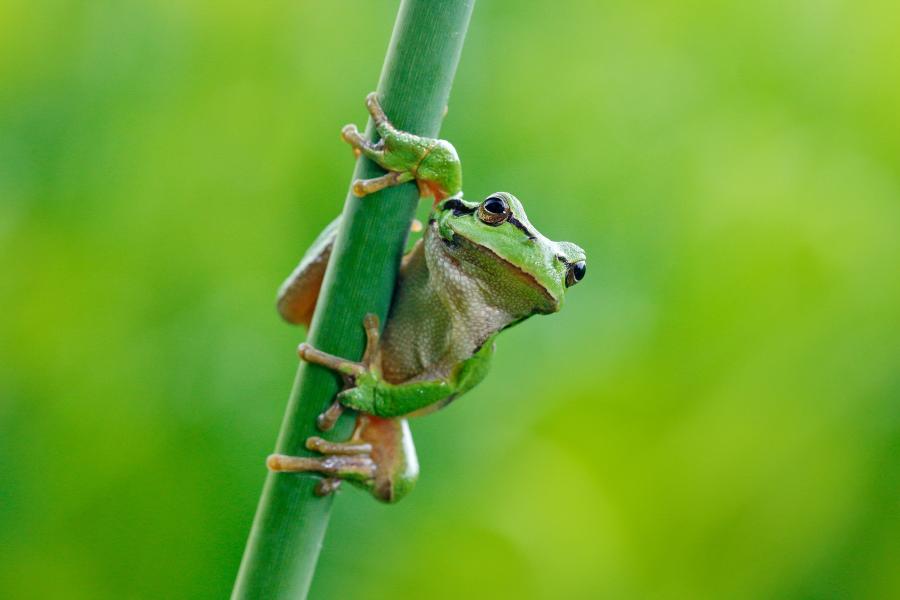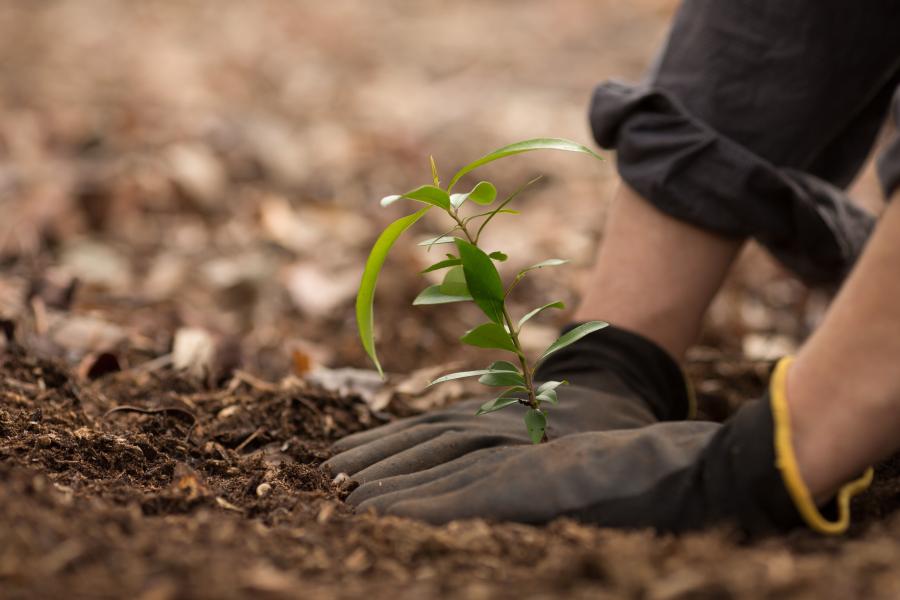About This Course
Environmental conservation is now top of government agendas around the world which means that we now require a new generation of trained professional scientists with a sound zoological knowledge and an appreciation of the issues involved in local and global conservation.
On our BSc Zoology with Conservation degree course, we will teach you all about traditional zoology, including taxonomy, morphology, physiology and cell biology with an emphasis upon animal ecology (biodiversity, ecology, behaviour and evolution). You will also take modules that will give you an understanding of the need for environmental conservation and how conservation objectives can be achieved. This degree establishes links between the academic learning environment and external environmental and conservation organisations in the form of project work and practical management plans.
You will acquire a broad theoretical understanding of zoology and conservation and you will also gain the associated practical skills. Along with a comprehensive range of transferable skills, this degree will equip you for a career in conservation.
We have always been one of the main UK universities for ecology and, because we are located next to Snowdonia National Park which is the perfect setting for this degree course. You will benefit from being close to an exceptional range of terrestrial, marine and freshwater habitats where field work. Field courses are an integral part of this degree.
Bangor is also the home of Natural Resources Wales as well as the divisional offices of the Centre for Ecology and Hydrology (CEH), and the Royal Society for the Protection of Birds (RSPB), all of which have close links to the University and staff associated with this course. These links feed directly into our teaching.
Why choose Bangor University for this course?
- TV presenter Steve Backshall is now part of our teaching team.
- Bangor is the ideal place to study all aspects of wildlife and conservation – with a huge range of habitats on our doorstep.
- Our extensive additional teaching facilities include a natural history museum, freshwater and marine aquaria, a farm and a botanic garden.
Additional Course Options
This course is available with a Placement Year option where you will study for 1 additional year. The Placement Year is undertaken at the end of the second year and students are away for the whole of the academic year.
The Placement Year provides you with a fantastic opportunity to broaden your horizons and develop valuable skills and contacts through working with a self-sourced organisation relevant to your degree subject. The minimum period in placement (at one or more locations) is seven calendar months; more usually you would spend 10-12 months with a placement provider. You would normally start sometime in the period June to September of your second year and finish between June and September the following year. Placements can be UK-based or overseas and you will work with staff to plan and finalise the placement arrangements.
You will be expected to find and arrange a suitable placement to complement your degree and will be fully supported throughout by a dedicated member of staff at your academic School and the University’s Careers and Employability Services.
You will have the opportunity to fully consider this option when you have started your course at Bangor and can make an application for a transfer onto this pathway at the appropriate time. Read more about the work experience opportunities that may be available to you or, if you have any questions, please get in touch.
This course is available with an International Experience Year option where you will study or work abroad for 1 additional year. You will have ‘with International Experience’ added to your degree title on graduating.
Studying abroad is a great opportunity to see a different way of life, learn about new cultures and broaden your horizons. With international experience of this kind, you’ll really improve your career prospects. There are a wide variety of destinations and partner universities to choose from. If you plan to study in a country where English is not spoken natively, there may be language courses available for you at Bangor and in your host university to improve your language skills.
You will have the opportunity to fully consider this option at any time during your degree at Bangor and make your application. If you have any questions in the meantime, please get in touch.
Read more about the International Experience Year programme and see the studying or working abroad options on the Student Exchanges section of our website.
Course Content
On this course you are required to take 120 credits each year made up of lectures, practicals, and interactive exercises, as well as field trips and tutorials in years 1 and 2. The final year can include an integrated research project, which is supervised by a member of staff on a subject to suit your interests. Modules become more specialised as the degree progresses and the number of compulsory modules varies between years. Assessment is by a mixture of formal examination and continuous assessment. Welsh medium modules are also available.
If at the end of Year 2 you have achieved a sufficient standard, then you will be invited to progress onto the Masters year (MZool) following completion of Year 3.
Modules for the current academic year
Module listings are for guide purposes only and are subject to change. Find out what our students are currently studying on the Zoology with Conservation BSc (Hons) Modules page.
Course content is for guidance purposes only and may be subject to change.
Facilities
Natural Sciences facilities
- Natural History Museum with an exceptionally comprehensive collection of vertebrate material, which includes a diverse collection of vertebrate and invertebrate specimens, including primates.
- Extensive marine and freshwater aquaria with a suite of temperature-controlled rooms.
- Pigeon loft for bird cognition, physiology, and biomechanics research.
- Treborth Botanic Garden, which covers an area of 18 hectares on the shores of the Menai Strait. It contains Europe's largest underground root laboratory (the rhizotron), a teaching laboratory, formal garden beds, a rock garden, an arboretum and a conservation collection.
- Rodent and reptile facilities.
- Our university farm based at Henfaes, about 7 miles from Bangor and totals 252 hectares. It provides facilities for research and teaching in lowland agriculture, forestry, hydrology, environmental science and conservation. We conduct fieldtrips and you can run your own large-scale experiment for your project.
- Alpaca, sheep and bee hives at the University farm at Henfaes.
- We are on the coast, next to the Irish Sea and the Menai Strait providing a range of habitat types for field courses and study sites for final-year projects.
- Dedicated reptile facilities including venomous snake rooms.
- Environmentally controlled spaces for project work.
- Insect rooms.
- Woodlands.
- Large modern teaching and research laboratories, and a dedicated student research hub for dissertation work.
- Imaging facilities.
- A very large range of analytical kit, so that you can learn how to analyse environmental samples both in the field and in the lab.
- Our very own geology collection – regarded as one of the best in the country.
- Computer laboratories for you to develop your skills in key areas such as digital mapping and environmental modelling.
- Wood library.
- Dedicated environmental research labs.
- One of our best facilities is the environment on our doorstep – you will get the chance to visit so many different places on our fieldtrips, which will cement your learning and understanding of topics.
- Our biological, chemical, and environmental laboratories are used for a range of teaching and learning. We have specific research-laboratories located in the Environmental Centre Wales, which include: a radio and stable isotope lab, a Category 2 pathogen lab, a darkened microscope room, sample preparation laboratories and a dedicated analytical instrument lab.
General University Facilities
Library and Archive Services
Our four libraries provide a range of attractive study environments including collaborative work areas, meeting rooms and silent study spaces.
We have an extensive collection of books and journals and many of the journals are available online in full-text format.
We house one of the largest university-based archives not only in Wales, but also the UK. Allied to the Archives is the Special Collections of rare printed books.
Learning Resources
There is a range of learning resources available, supported by experienced staff, to help you in your studies.
The University’s IT Services provides computing, media and reprographics facilities and services including:
- Over 1,150 computers for students, with some PC rooms open 24 hours a day
- Blackboard, a commercial Virtual Learning Environment, that makes learning materials available on-line.
Entry Requirements
GCSE: grade C/4 in English, Maths and Double Award Science, if not demonstrated by the Level 3 qualification/s.
Offers are tariff based, 104 - 128 tariff points from a Level 3 qualification e.g.:
- A Levels: Including grade C in Biology if studying 1 other science subject (Chemistry, Physics, Maths, Psychology, Environment Science, Geography, Geology); or grade B in Biology if not studying another science subject. General Studies and Key Skills not normally accepted.
- BTEC National Extended Diploma: DMM - DDM including Merits in 4 Biology modules. Modules accepted: Animal Biology; Animal Anatomy and Physiology; Animal Behaviour and Communication; Animal Breeding and Genetics; Biochemistry and Biochemical Techniques; Biochemistry and Microbiology; Fundamentals of Science; Genetics and Genetic Engineering; Inheritance and Genetic Manipulation; Physiology of Human Body systems; Physiology of Human Regulation and Reproduction; Wildlife Populations, Ecology and Conservation. (Other Biology-related modules considered case by case.)
- Cambridge Technical Extended Diploma in Applied Science**: DMM - DDM
- City & Guilds Advanced Technical Extended Diploma (1080): DMM - DDM, including 4 Biology modules (Accepted Biology modules include: Animal Behaviour and Communication; Biological Systems of Animals; Wildlife and Ecology Conservation; Inheritance and Genetics; Ecological Concepts and Application; Population Surveys; Ecology and Conservation. Other Biology-related modules considered case by case).
- International Baccalaureate Diploma: Including H5 in Biology
- Welsh Baccalaureate: We will accept this qualification in conjunction with other level 3 qualifications
- Access to HE in Science**: Pass required
- T-levels: considered on a case-by-case basis
- Extended Project Qualification: Points can include a relevant Extended Project (EPQ) but must include a minimum 2 full A-levels, or equivalent.
We are happy to accept combinations of the qualifications listed above, as well as alternative Level 3 qualifications such as City & Guilds, Access and Cambridge Technical Diplomas.
We also welcome applications from mature learners.
International Candidates: International Candidates: school leaving qualifications that are equivalent to A levels/Level 3 and/or college diplomas are accepted from countries worldwide (subject to minimum English Language requirements). More information can be found on our International pages.
*For a full list of accepted Level 3 qualifications, go to www.ucas.com.
**Similar subject areas may be considered on a case-by-case basis.
General University Requirements
To study for a degree, you’ll be asked for a minimum of UCAS Tariff points. For a fuller explanation of the UCAS Tariff Points, please see www.ucas.com.
We accept students with a wide range of qualifications and backgrounds and consider each application individually.
All students need to have good basic skills and the University also values IT and communication skills.
As part of the University’s policy, we consider applications from prospective disabled students on the same grounds as all other students.
We also consider applications from mature students who can demonstrate the motivation and commitment to study a university programme. Each year we enrol a significant number of mature students. For more information about studying as a mature student, see our Studying at Bangor section of the website.
EU and International Students' Entry Requirements
For detailed guidance on the entry requirements for EU and International Students, including the minimum English Language entry requirement, please visit the Entry Requirements by Country pages. International applicants can also visit the International Education Centre section of our website for further details.
Bangor University offers International Incorporated Bachelor Degrees for International students whose High School qualification is not equivalent to the UK school leaving qualification. The first year (or Year 0) is studied at Bangor University International College, an embedded College on our University campus and delivered by Oxford International Education Group.
Careers
Conservation zoologists work mostly in government organisations (local councils, CCW, CEH and EA) or in non-governmental organisations (eg National Trust, RSPB). Ranges of career paths are available within these organisations, from wildlife monitoring and assessment to the practical implementation of conservation management plans.
Opportunities at Bangor
The University’s Careers and Employability Service provides a wide range of resources to help you achieve your graduate ambitions.
The Bangor Employability Award (BEA)
The BEA is a comprehensive online course that you can work through at your own pace, taking you through all the steps you need to take to explore, prepare and apply for your dream career.
Internships
Bangor University runs a paid internship scheme within the university’s academic and service departments.
Student Volunteering
Volunteering widens your experience and improves your employability. Find out more about volunteering on the Students’ Union’s website.
Foundation Year
A 'with Foundation Year' option is available for this course. Apply for Zoology (with Foundation Year).
What is a Foundation Year course?
If you don’t have the required qualifications for the degree-level course or are looking to re-enter education after time away from study, then a Foundation Year Programme might be the right choice for you.
The Foundation Year is an excellent introduction to studying this subject at university and will provide you with the knowledge, skills and confidence required to go on to study this course at degree-level.
When you have successfully completed the Foundation Year, you can progress on to the first year of this degree-level course.







